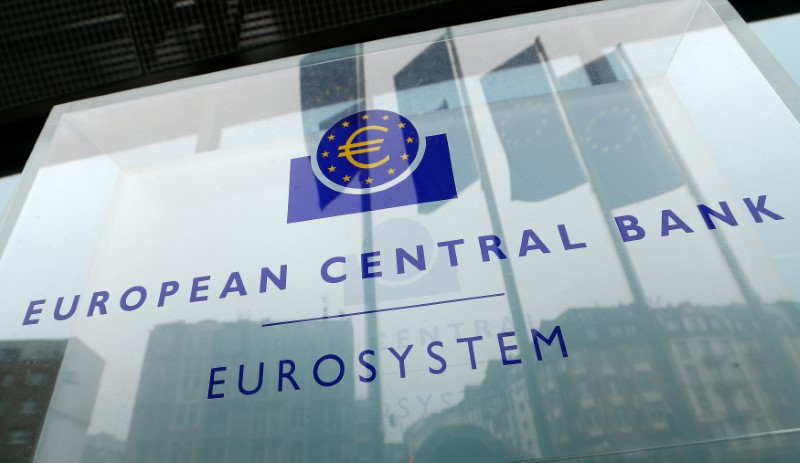(Bloomberg) -- The European Central Bank is poised to deliver another blast of monetary stimulus on Thursday to carry the euro area out of the pandemic crisis.
With new lockdowns hammering the economy, vaccines only just arriving, and Brexit talks on a knife-edge, policy makers are expected to add 500 billion euros ($605 billion) to their emergency bond-buying program and extend it until at least the end of 2021. Banks will likely be offered more ultra-cheap long-term loans.
The aim is to keep financing conditions loose through the economic crisis, which could run well past the end of the health emergency. That’ll complement fiscal aid including the European Union’s 1.8 trillion-euro joint spending package, which leaders also hope to finalize on Thursday.
The central bank will publish its decision at 1:45 p.m. Frankfurt time, and President Christine Lagarde will hold a virtual press conference 45 minutes later.
Emergency Measures
Most economists surveyed by Bloomberg predict the Pandemic Emergency Purchase Program will be increased to 1.85 trillion euros and lengthened by six months. ECB officials would probably sign off on a 12-month extension if proposed, according to people familiar with the situation.
The Governing Council is also seen offering new longer-term loans to banks. While that tool to keep credit flowing to companies and households pre-dates the pandemic, an especially low incentive rate is available during the crisis, and the period in which that applies is also expected to be extended.
Older Tools
The ECB hasn’t cut its official interest rates at all during the pandemic, and that’s not likely to change on Thursday. All 33 economists surveyed predict the deposit rate will remain at -0.5%. Investors are currently pricing a 10 basis-point cut in December next year.
The central bank’s older asset-purchase program, which started in 2015, is also unlikely to be touched just yet while the focus remains on the more-powerful pandemic instruments.
Bank Dividends
There is intense interest in whether the ECB, as the region’s bank supervisor, is ready to lift its de facto ban on dividend payments by lenders. It’s a complex decision given that banks are currently benefiting from regulatory relief and government loan guarantees.
Lagarde might well be quizzed on it, but the ECB is careful to ensure a separation between its monetary and supervisory duties, so she may choose to deflect the issue.
Economic Projections
The ECB’s economic forecasts are due for an update, and will likely need a thorough revision. While the third-quarter rebound was stronger than expected, the subsequent wave of infections came sooner and more forcefully than assumed.
Lagarde has said recent vaccine developments aren’t a “game changer” for the projections, so they’re set to show a less severe downturn this year but weaker growth in 2021.
An important number will be the first estimate for inflation in 2023. Economists predict it will remain well below the ECB’s goal of below, but close to, 2%, in a reminder that even after the crisis the central bank’s job isn’t done.
Abundant Risks
One risk that has returned to the fore is the exchange rate. The euro has jumped since the summer, making exports from the currency bloc less competitive and putting downward pressure on inflation by making imports cheaper. The ECB frequently stresses that it doesn’t target the exchange rate, but a similar rise earlier this year did trigger concerns.
Hopes are growing that a stalemate over the EU’s recovery fund and enhanced seven-year budget has been overcome, which will be a relief to Lagarde. A two-day summit of EU leaders that could resolve conflicts with Poland and Hungary starts shortly before the ECB’s decision is announced.
The EU’s negotiations with the U.K. over a trade deal are more finely balanced though, meaning economic disruption could be on the cards when the Brexit transition period ends on Dec. 31.
British Prime Minister Boris Johnson and European Commission President Ursula von der Leyen, who held talks over dinner on Wednesday, agreed to give both sides until Sunday to try to bridge their differences.
©2020 Bloomberg L.P.
